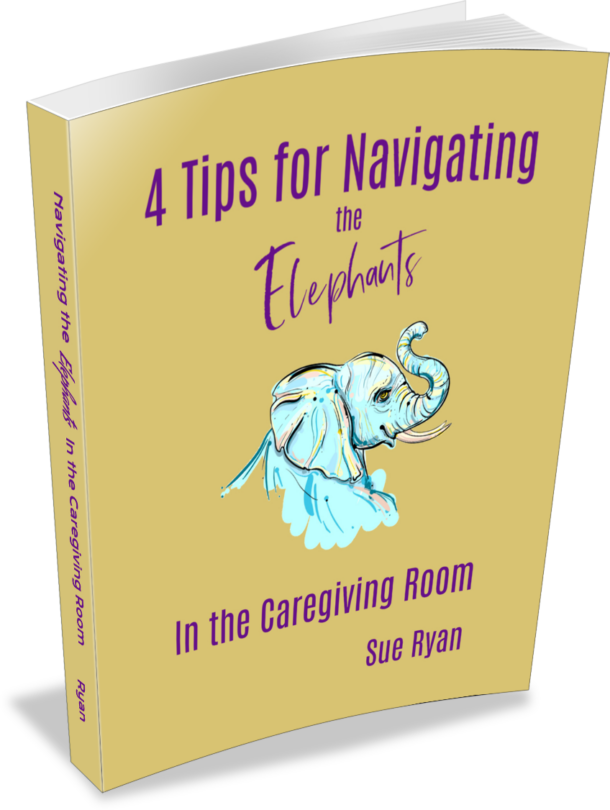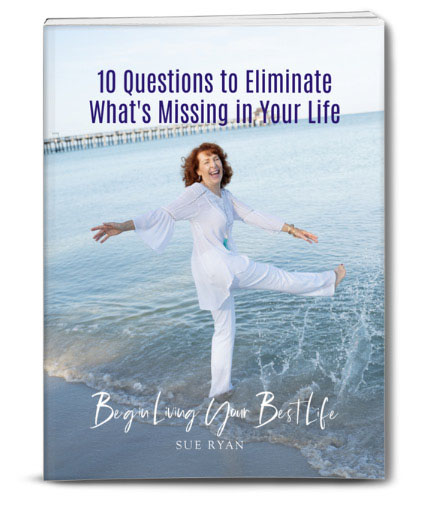
Who is a C.A.R.E. prodigy and why do we want to be one?
We are C.A.R.E. prodigies when we have learned our uniquely greatest talents and abilities (the definition of prodigy). We use them to live with confidence and clarity. We use them to positively manage the care of our loved ones.
We live our best lives and support our loved ones living theirs.
One day, our lives are moving forward as normal. The next day, we want a Ph.D. in types of Dementia and care!
Before the diagnosis my husband, Jack, received in 2014, there were a series of small changes or incidents that became significant enough to cause a larger, more important change – his going for cognitive tests. The results of these tests were the critical point that led to an instantly irreversible change in our lives and the lives of those around us.
When Jack and I received his initial Dementia diagnosis, he instantly became a care receiver and I instantly became a primary care giver. We were surprised when we received our diagnosis; Jack had enjoyed great health throughout his life. Although I had been in a variety of care support roles with loved ones whose lives were touched by a type of Dementia, none of them had been as the primary care giver.
Jack and I began ourJourney of Love with a passion to maximize our experience together – along with uncertainty in many areas. For example, when Jack was originally diagnosed, the doctors identified he symptomatically represented three different types of Dementia. Since his original results, his diagnosis has transitioned from Dementia with Lewy Bodiesto Frontotemporal Dementiato Alzheimer’s Disease.
Just as many of us did not go to school to learn about the group of symptoms affecting memory, thinking and social abilities described as Dementia (Dementia itself is not a specific disease), many of us did not go to school to learn roles of care support!
I recognized, and now share with others, that when our loved one is diagnosed, a magic wand is not waved over us so that we instantly:
- Have the compassion, skills, stamina, and strength of healthcare professionals
- Become qualified financial managers – especially If we haven’t previously managed household finances
- Have the knowledge of a Neurologist who has studied at least twelve years to earn their license
- Have certifications in Dementia care so we know exactly what to do to care for our loved one.
Hugely important is that no one else can sleep, exercise, eat healthy, manage our own health or be social forus. When we step into care support roles no one else can make us feel great about ourselves because we make self-care a priority so we can be healthier care providers and supporters. These all have to come fromus, forus.
No one else can sleep, exercise, eat healthy, manage our own health or be social forus
Care Supporter Concerns
I have been participating in the communities of Dementia Support for nearly thirth years. Time and time again I hear people share their challenges, and at times my voice is one of them. Some of these include them feeling guilty because they believe they should be more compassionate with their loved one. They feel guilty about feeling angry that the disease has disrupted their plans and their future. They are frustrated because they don’t understand their loved one’s behavior. They are worrying about finances, feeling guilty because they feel selfish and resentful about giving up so much of their lives to care for someone they love, feeling guilty considering going to lunch with a friend when their loved one can’t go with them, worrying constantly about the safety of their loved one, worrying about the progression of the disease and its impacts, constantly being fearful and exhausted because of the magnitude of their care responsibilities – many of which they have no training in and are very challenging for them. Can you hear yourself in any of these? I’m sure you can add to this list, and, unfortunately, it’s not a list worded in the positive.
How do we learn to navigate our new responsibilities and concerns without our lives being in constant turmoil, frustration, guilt, worry and exhaustion?
We are each unique – embrace it!
Let’s begin with how each of us is wired – differently! We are each unique and have our own areas of interest, skill, expertise, passion. We were born with certain characteristicsbased on our genetics and develop others based on our influences and experiences. Our lives are as unique as we are, so we each remainamazingly unique.
Why does recognizing and embracing our uniqueness matter?
When we become members of the Dementia Support Community, we don’t all of a sudden become alike, with the same interests, skills, expertise and passions. If we weren’t naturally gifted or trained in an area before the diagnosis, we aren’t immediately experts, or passionate about it, after the diagnosis. We need to learn if and how we are qualified to provide care in each area so we have the best resources for support in all areas.
The definition of a prodigy is to have uniquely great talents and abilities. That defines all of us even if we haven’t yet recognized it in ourselves. We begin identifying how we are most qualified to provide care by becoming aware of our already existing uniquely greatest talents and abilities. I call this The Prodigy Zone™. Once we know what ours is – and isn’t, we know how to live in it, lead our lives from it, and work with others to determine how to be and provide the best support in all areas.
I’ve written an article titled The Prodigy Zone ™, to explain how you discover yourprodigy zone, learn to live in it, lead your life from it, and align yourself with other resources for those items not in your prodigy zone.
I created the acronym, C.A.R.E. to represent the four areas for us to focus on to maximize the experiences both for our loved ones and us:
C– Capability
A– Massive Acceptance
R– Radical Presence
E– Eliminating labels
C – Capability
Identifying the skill(s) and expertise required in each area of care and who is most qualified to provide them.
Throughout the progression of the disease there will be times when we are most qualified to provide care and times when we are not. Being practical about this ensures the best levels of care and safety for our loved ones, those around them, and us. Trying to do this on our own when we are clearly not the most capable resource creates stress, diminishes the level of care, and puts our loved ones, those around them, and us, at risk.
When we know what is required in each area of care, and have clarity and certainty about our qualifications, we take positive action to provide the best support for our loved ones. Either we provide the support or reach out to the appropriate resources to get support in the area(s) needed. This clarity is one of the gifts from discovering our prodigy zone and learning how to live our lives from it.
Even after her diagnosis of Alzheimer’s, and as the disease progressed, my grandmother wanted to stay living at home and my Aunt and Uncle honored her wishes. My Uncle was sure he could take care of his mother because she was a tiny woman, so with his very best intentions he cared for her. Over time he began developing pains he couldn’t understand, he was exhausted, and he was getting depressed. He finally asked a nurse to come assess his mother’s needs. When the nurse began working with them, she recognized that my Uncle was straining himself when he was lifting Grambet because he didn’t know how to lift her correctly. It didn’t matter that he was bigger or stronger, he wasn’t properly trained and was harming himself. Fortunately, my Uncle brought the nurse in before he had done major harm to himself – or accidentally – to his mother. Even with the best of intentions the outcome may not be what we anticipate. Don’t assume and don’t guess; get guidance that helps you know your capabilities in each area of care.
Even with the best of intentions the outcome may not be what we anticipate. Don’t assume and don’t guess; get guidance that helps you know your capabilities in each area of care.
A -Massive Acceptance
Massiveis defined as enormous, gigantic, extensive. The considerations of the disease and care roles of support are massive! Acceptance is defined as agreement/belief in an explanation and a willingness to tolerate a difficult or unpleasant situation. Massive Acceptanceis willingly accepting both our journey and the journey of our loved one. It’s removing the judgement, anger, or resentment of the complexities of the disease while not diminishing its extent and impact.
Jack and I never questioned why a type of Dementia became part of our journey together – we accept without the need to understand. We look for the experiences in our lives that prepared us for our journey. We choose to maximize our time together. We don’t want to miss any of our opportunities to learn because our minds and hearts are clouded with emotions that take away our ability to stay fully present.
Yes, there are challenges with all roles in this journey. Accepting our journey – with all of the people I know who have the diagnosis of a type of Dementia– allows me to stay present to where each person is, to be sensitive to their changes so I can research what I need to learn, prepare for, and do to best support them. I am able to meet them where they are so we can maximize each moment, often seeing beauty and humor in even the tiniest experience.
R -RadicalPresence
This is so much more than just being with our loved one and it so much more than recognizing every once in awhile that we are tired or frustrated, or feeling great about something we do. Radicalis advocating for, it is thorough and complete presence in the moment. Radical presence is only possible when we have massive acceptance. We are able to consciouslyfocus on thoughts/feelings/actions of our loved ones and ourselves with clarity about exactly what is.
A component of my Dad’s type of Dementia is he lost the ability to use his words. He would start a sentence and we knew what he wanted to say, but the words would quit coming. Staying radically present with him allowed me to focus 100% on both what he was saying and how he was communicating, so we could have a great conversation. One example is when Dad was telling me he loved me. When the words couldn’t come I didn’t focus on what Dad wasn’t able to say or do, I wasn’t being frustrated by the unfairness of his journey. Radical presence allowed me to see the beauty in the moment. I could see it in his eyes, I could feel it in his demeanor. When I think of my Dad, my powerful and peaceful memory is him communicating his love for me in this pure, unfiltered way.
A very important component of the definition of radical is Advocacy. We support, we advocate for the ones we love – and for ourselves. We communicate for them when they can’t so the decisions about their lives are made in their best interest. We advocate for ourselves so our needs are also heard and understood. It is all too easy for us to advocate for those we love and not for ourselves. They are not in this alone and neither are we. Advocacy comes in many forms. Here are two examples:
Before entering memory care, Jack went to Catholic mass every day. I’m not Catholic but I enjoyed going to church with him every day. I saw essentially the same people there every day. There was a grocery store two blocks from our church; it occurred to me it would be so easy for me to get the grocery shopping done while Jack was at church if he could sit with another parishioner. One day, I asked several parishioners if Jack could sit with them every once in awhile so I could go to the grocery. Immediately they said yes, and one of the parishioners offered to drive Jack home from church since he went past our home on his way home after church. They were able to lean in and provide support that was amazingly helpful for me and they felt great about being able to do something to help.
Now that Jack lives in memory care, I advocate for him at the facility where he is living. In addition to my time with him, I stay actively involved in their memory care community, participate on the council of family members of residents as the voices for our loved ones with facility management, and stay connected with the Dementia community to learn about opportunities to improve his care.
It is all too easy for us to advocate for those we love and not for ourselves. They are not in this alone and neither are we.
E -Eliminatelabels
Become conscious – aware – of words we use as labels to describe someone or something, how we define them, use them, and what we do based on them. We are then able to accurately and effectively use the words that serve what we actually mean, so we take appropriate action. We don’t have unconscious bias, we don’t misrepresent ourselves – to ourselves and others, and we don’t use the label instead oftaking appropriate action.
One of the most powerful lessons I am grateful for in my life is when I was taught to question words I use or accept. I was shocked as I realized I didn’t have my own definition for them and, in some cases, I had adopted what someone else had defined the word or phrase as without exploring it for myself. Gaining clarity on the defintion I accept for these words and phrases is one of the most powerfully transformational components in my own personal and professional development as well as how I live my journey with Dementia.
People share with me the transformation in their lives, as they eliminate labels they have accepted that others have defined – without even realizing they did. Their stories are as humbling as they are powerful.
Questioning words I use, and making sure I have the clarity of their definition that serves me now, is one of the most incredibly valuable components of my Journey of Love with Dementia.
There is a long list of common labels we may be unconsciously and often misusing. Here are a couple common examples to introduce you to the importance of eliminating them and gaining clarity about your understanding of the definition for words you use.
Feel guilty
Example – A friend calls to invite you to lunch and you say you feel guilty because you want to go have lunch alone with them instead of also bringing your loved one who has a type of Dementia.
What is your definition of “guilty”? What does feeling guilty cause you to do or not to do?
The word guilty is an adjective – it describessomething, it doesn’t doanything. Here is one definition of guilty. I encourage you to read it! Is there a different word or phrase that can more accurately reflect how you actually feel and think so it can serve you feeling the appropriate emotion and taking the best action?
Worry
Example – Your loved one has become forgetful and you worry about them.
What is your definition of worry? When you worry, what do you do?
When we worry, we are like fictional script writers – we tend to write scenario after scenario projecting what might be, each scenario getting more dramatic in our minds. We create a cloud that prevents being radically present, gaining clarity and taking positive action. There is often a lot of worry and little action! Stay present, take action on what actually is needed, and don’t project what isn’t.
Here is one definition of worry. Is there a different word or phrase that can more accurately reflect how you feel and what you do?
Become a C.A.R.E. Prodigy. Live your best life and support your loved ones living theirs!




0 Comments